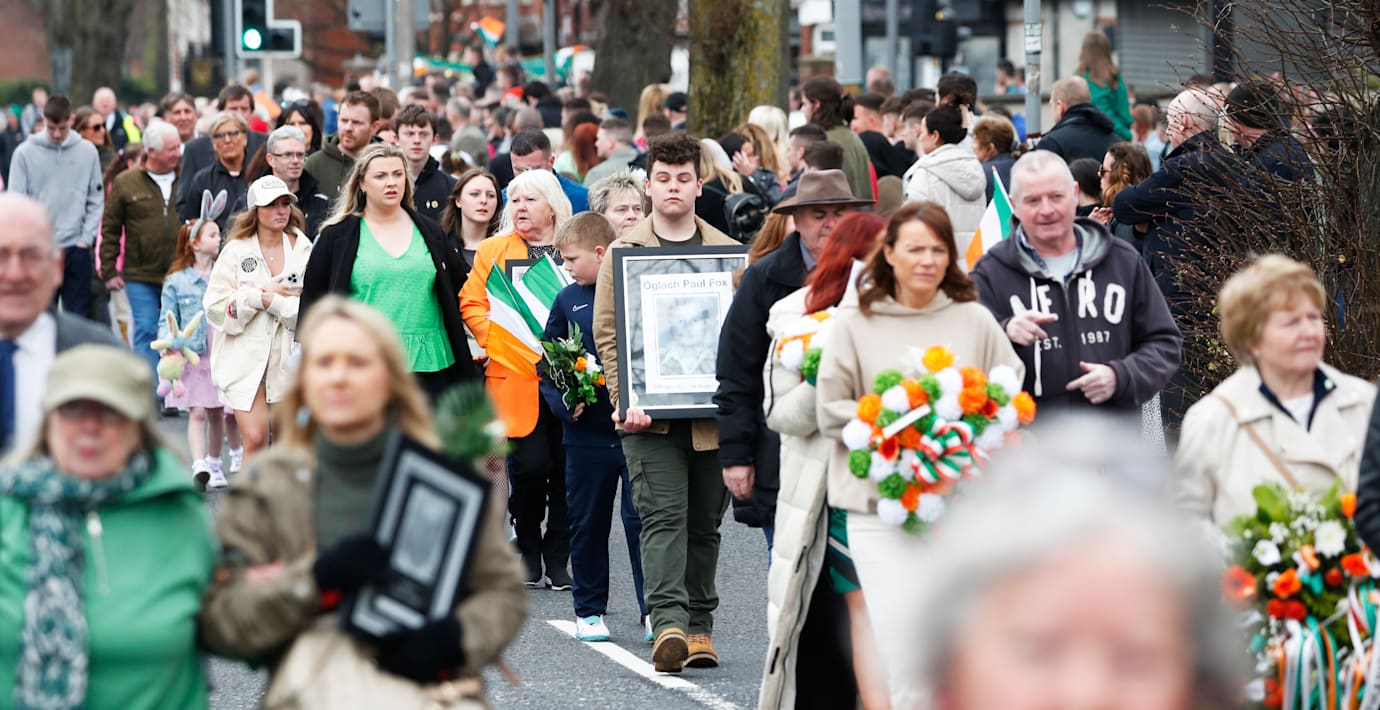
Årsdag för historiskt avtal firas under hot om våld
Flera världsledare, bland andra USA:s president Joe Biden, är på väg till Irland och Nordirland för att fira 25 år av fred. Den 10 april 1998 undertecknades Långfredagsavtalet, som innebar slutet på årtionden av våldsamheter mellan unionister och republikaner.
Biden väntas anlända till Belfast på tisdagen, där han välkomnas av brittiske premiärministern Rishi Sunak.
Firandet sker samtidigt som spänningarna i Nordirland är de största på länge. Flera attentat, som misstänks ha utförts av republikanska utbrytare, har skett de senaste månaderna. Polisen i Nordirland har också meddelat att man fått trovärdiga uppgifter om planerade våldsdåd i veckan, skriver TT.
bakgrund
Långfredagsavtalet
Wikipedia (en)
The Good Friday Agreement (GFA), or Belfast Agreement (Irish: Comhaontú Aoine an Chéasta or Comhaontú Bhéal Feirste; Ulster-Scots: Guid Friday Greeance or Bilfawst Greeance), is a pair of agreements signed on 10 April 1998 that ended most of the violence of the Troubles, a political conflict in Northern Ireland that had prevailed since the late 1960s. It was a major development in the Northern Ireland peace process of the 1990s. It is made up of the Multi-Party Agreement between most of Northern Ireland's political parties, and the British–Irish Agreement between the British and Irish governments. Northern Ireland's present devolved system of government is based on the agreement.
Issues relating to sovereignty, governance, discrimination, military and paramilitary groups, justice and policing were central to the agreement. It restored self-government to Northern Ireland on the basis of "power sharing" and it included acceptance of the principle of consent, commitment to civil and political rights, cultural parity of esteem, police reform, paramilitary disarmament and early release of paramilitary prisoners, followed by demilitarisation. The agreement also created a number of institutions between Northern Ireland and Ireland ("North–South"), and between Ireland and the United Kingdom ("East–West").
The agreement was approved by voters across the island of Ireland in two referendums held on 22 May 1998. In Northern Ireland, voters were asked in the 1998 Northern Ireland Good Friday Agreement referendum whether they supported the multi-party agreement. In Ireland, voters were asked whether they would allow the state to sign the agreement and allow necessary constitutional changes (Nineteenth Amendment of the Constitution of Ireland) to facilitate it. The people of both jurisdictions needed to approve the agreement in order to give effect to it.
The British–Irish Agreement came into force on 2 December 1999. The Democratic Unionist Party (DUP) was the only major political group in Northern Ireland to oppose the Good Friday Agreement.
Omni är politiskt obundna och oberoende. Vi strävar efter att ge fler perspektiv på nyheterna. Har du frågor eller synpunkter kring vår rapportering? Kontakta redaktionen


